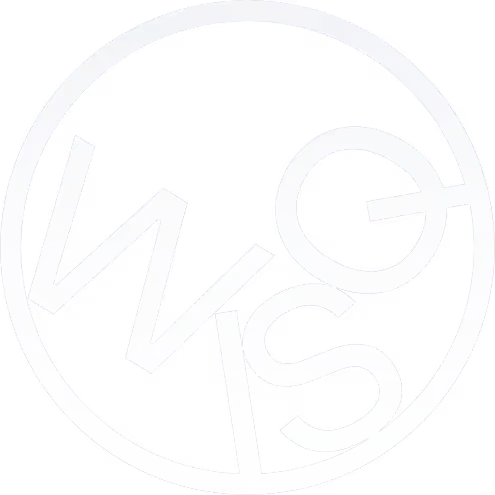The Human Element
Meet Your Agent: What AI Teammates Do (And Don’t)
Learn the difference between chatbots and AI agents, and why that differentiation is so important to unlock the true power of HR automation tools.

Even seasoned HR leaders can find today’s AI landscape complex—ChatGPT, Gemini, Claude, Grok, Copilot, Jasper and more each stake a claim. Rather than catalog every offering, let’s focus on what truly matters at the strategic level: when to deploy a conversational interface and when to entrust outcomes to an autonomous agent.
At their core, chatbots are interfaces for two-way dialogue. Modern chatbots leverage large language models to interpret intent, recall context, and craft human-quality responses, making them ideal for scenario-based guidance, benefits FAQs, or employee self-service portals. They excel where a structured conversational flow can streamline inquiries without requiring back-end action.
AI agents (AKA agentic AI) on the other hand, combine conversational fluency with autonomous execution. They sense changes in their environment, pulling data from HRIS, calendar systems, emails, and more, then plan and carry out multi-step workflows without human prompts. Agents learn over time, adapt to evolving HR needs, and drive continuous improvement in efficiency and employee experience.
Understanding these distinctions empowers you to architect your AI roadmap with precision.
In this lesson, we will examine what makes AI agents unique and why that matters for HR organizations. Then you can quiz yourself to see what you’ve learned so far about AI agents, and get a checklist of what to look for when evaluating AI agent vendors or platforms. Let’s get started.
Core Concepts: What is an AI Agent?
Think of AI agents as an AI teammate. An AI teammate is an autonomous software entity that evolves, learns, and takes initiative based on the data you supply it, plus the insights they acquire. AI teammates don’t have to be prompted like a chatbot does. They can integrate with your HR systems, monitor changing conditions, and execute multi-step workflows on your team’s behalf. Here are some key traits that differentiate AI agents from chatbots.
- Autonomy: AI agents can act largely on their own, with only minimal human oversight. This sets them apart from chatbots and other early AI, which focused on executing specific tasks and recommending others while still needing heavy human intervention.
- Context awareness: The ability to strategize is another element in the difference of AI agent vs. chatbot. AI agents interpret the larger goals of the business, plan to hit objectives, and analyze the necessary data to make those choices.
- Learning: Think of it as adaptability. Chatbots don’t evolve over time or get better with more input. AI Agents do, and this improvement over time based on feedback and experience sets them apart from the hordes of chatbots.
- Workflow integration: AI agents (like Harper) integrate with your current HR systems, learning from policies and procedures to ensure they provide accurate information. In this way, AI agents act as a layer on top of your existing systems, making them an effective, time-saving AI automation tool.
Why AI Agents Matter for HR
So what are the key pain points and use cases for AI agents for HR?
Repetitive tasks are a struggle for most HR professionals. AI agents perform these to free up humans to focus on strategic tasks. Quicker response time is another way that AI agents can improve operations. For example, Harper answers questions in an average of 8 seconds. And unlike human employees, AI agents are available 24/7.
Here are a few key use cases where AI agents can help improve the lives of HR professionals. Agents can be HR generalists, providing not just hyper-personalized answers to questions about PTO, benefits, but autonomously handling more complex issues like leave management, time & attendance, progressive discipline, conduct violations, and more. AI Agents can deliver nuanced and tailored answers from their knowledge base. Another use case is the ability to analyze conversation trends and deliver analytics so leaders can get a sense of what’s trending for their employees. Performance management and career development is another use case with tremendous potential, since AI agents can provide personalized recommendations and feedback based on large amounts of data and previous conversations. In this way, it can provide an even better plan than a human in a shorter time frame.
Quiz: Agent or Not an Agent?
What You’ve Gained
Having completed Lesson 1, you now have the ability to distinguish AI agents from chatbots, pinpoint the strategic use cases and pain points they address in HR, and apply a structured checklist for evaluating AI-agent vendors. Before choosing an AI agent for HR, it’s important to evaluate both the technology and the partner behind it. Use this checklist to align your goals, vet capabilities, and make sure the solution fits your team, your systems, and your long-term needs.

A Look Ahead
If you haven’t yet identified them, now is the moment to pinpoint the most labor-intensive HR processes you could delegate to AI agents. We’ll provide illustrative examples in Lesson 2: “The Rise of AI Agents in the Workplace: Why HR Can’t Ignore It.”
Related

Why are AI agents abuzz right now, and why should you care?







